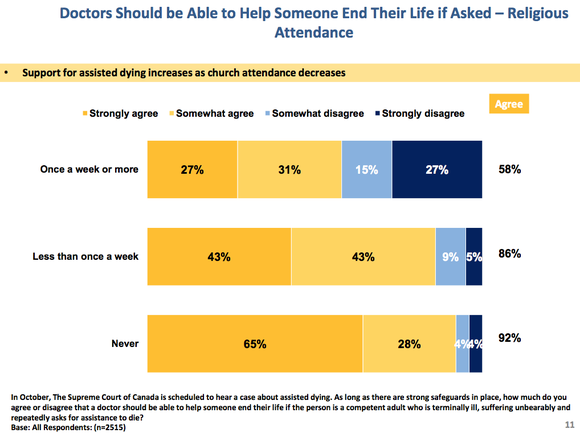By Nicholas Little
Legal Director, Center for Inquiry
On Thursday, November 13, the New Jersey State Assembly, the
lower legislative house, voted 41-31 to pass a
bill
permitting physician-assisted suicide in the Garden State. The
bill was originally intended to be voted on in June of this
year, but that vote had been dropped, and the bill finally
came to the floor in the recent aftermath of cancer sufferer
Brittany Maynard
making use of Oregon’s humanitarian law permitting death with
dignity in that state.
The New Jersey law closely follows those already in place in
Montana, Oregon, Washington and Vermont. It requires a
diagnosis from two separate doctors that a patient is
suffering from a terminal disease, which will cause death
within the next six months. In order to take advantage of the
law, a patient must be a New Jersey resident, over the age of
18, and possess the capacity to make health care decisions.
The bill includes multiple safeguards, including a requirement
that the patient is referred for counselling if depressed or
suffering from a psychological or psychiatric disorder, that
the patient’s next of kin be notified (unless the patient
declines said notification), and that no medical personal be
required to participate in the process.
For patients who meet the requirements, and make the informed
decision to request, the law permits them to be provided with
medication which they can self-administer in order to end
their lives. The medication must be requested both orally and
in writing, and, at least 15 days after the initial oral
request, the patient must make a second oral request. At that
point, the physician is required to offer the patient the
opportunity to rescind the request. After this, and at least
two days after the signed written request, the physician may
prescribe the medication.
The passage of this bill is a major step forward for the
rights of terminally ill patients in New Jersey. However, its
future passage is far from clear. While the New Jersey Senate
has a Democratic majority of 24 out of 40 seats, it is not
clear whether the bill would gain approval there. New Jersey
has a plurality (40%) of Roman Catholics, a church whose
leadership is inextricably opposed to assisted suicide
legislation. Lay opinion amongst Catholics, as on other
issues, varies, with
significant support
for the rights of terminally ill patients to control their
passing. Even if the bill were to pass both chambers, it seems
likely that Republican Governor Chris Christie would veto it.
Governor Christie has stated repeatedly that he is pro-life,
and has vetoed funding for
Planned Parenthood
in New Jersey multiple times. Current reports from the
pro-life movement indicate he has
pledged
to them he will veto this bill. Such a veto seems particularly
likely if Governor Christie is planning to seek the Republican
nomination for the Presidency for the 2016 election. To
override such a veto, the bill must receive the votes of two
thirds of the members, requiring thirteen further Assembly
members to grant their support.

